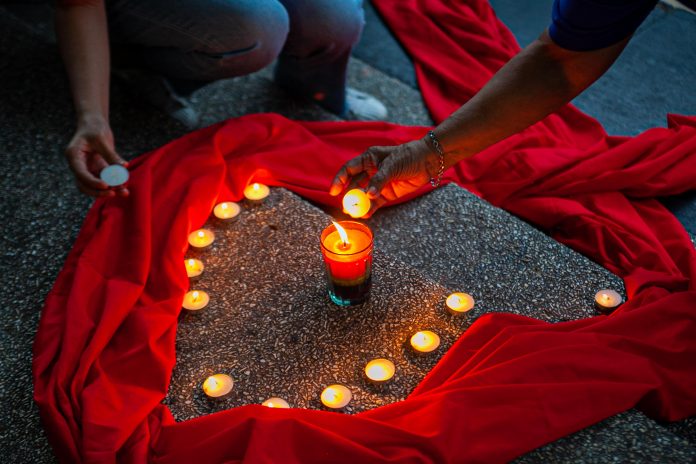A Catholic bishop in the Philippines stressed the need for “cooperation” and “proper intervention” among stakeholders to address the AIDS pandemic.
“The lack of information and its dissemination … is a major problem,” said Bishop Oscar Jaime Florencio, vice chairman of the Episcopal Commission on Health Care of the Philippine bishops’ conference.
In a radio interview on December 1, World Aids Day, the prelate noted lack of information among people living with HIV and AIDS where to get the proper intervention.
“If we really look at it … we need to listen and cooperate,” said Bishop Florencio over Radio Veritas 846, adding that the Church will never abandon people living with the disease.
“Be assured that even if you are suffering from HIV/AIDS, or other sickness, it does not mean that you will be set aside,” said the bishop.
“You are part of this Church, you will be taken care of and we will pray for you because you are one in the journey of the synodal Church,” he added.
In September, the Department of Health (DOH) recorded 1,347 new HIV cases in the country, representing a 37 percent increase in HIV cases compared to the 981 cases recorded during the same month last year.
Ninety-six percent or 1,293 of the new cases were males. Fifty-four cases or four percent were females, seven of whom were reported to be pregnant at the time of diagnosis. The pregnant HIV-positive women were between 15 to 38 years old.
The age of the newly reported cases ranged from two to 71: three or less than one percent were younger than 15 years old; 418 or 31 percent were 15 to 24; 667 (50 percent) were 25 to 34; 229 (17 percent) were 35 to 49 and 30 (two percent) were 50 and above.
Sexual contact remained the predominant mode of transmission for 1,323 individuals or 98 percent. Transmission through sharing of infected needles accounted for five cases or less than one percent.
Two cases (less than one percent) were children who acquired HIV through mother-to-child transmission.
Among the newly reported cases who acquired HIV through sexual contact, the DOH said 941 (71 percent) were males with a reported history of sex with another male, 260 (20 percent) had sex with both males and females while 122 (nine percent) had sex only with the opposite gender.
More than 55 percent or 746 of the total cases reported were from Metro Manila and the surrounding regions of Calabarzon and Central Luzon.









